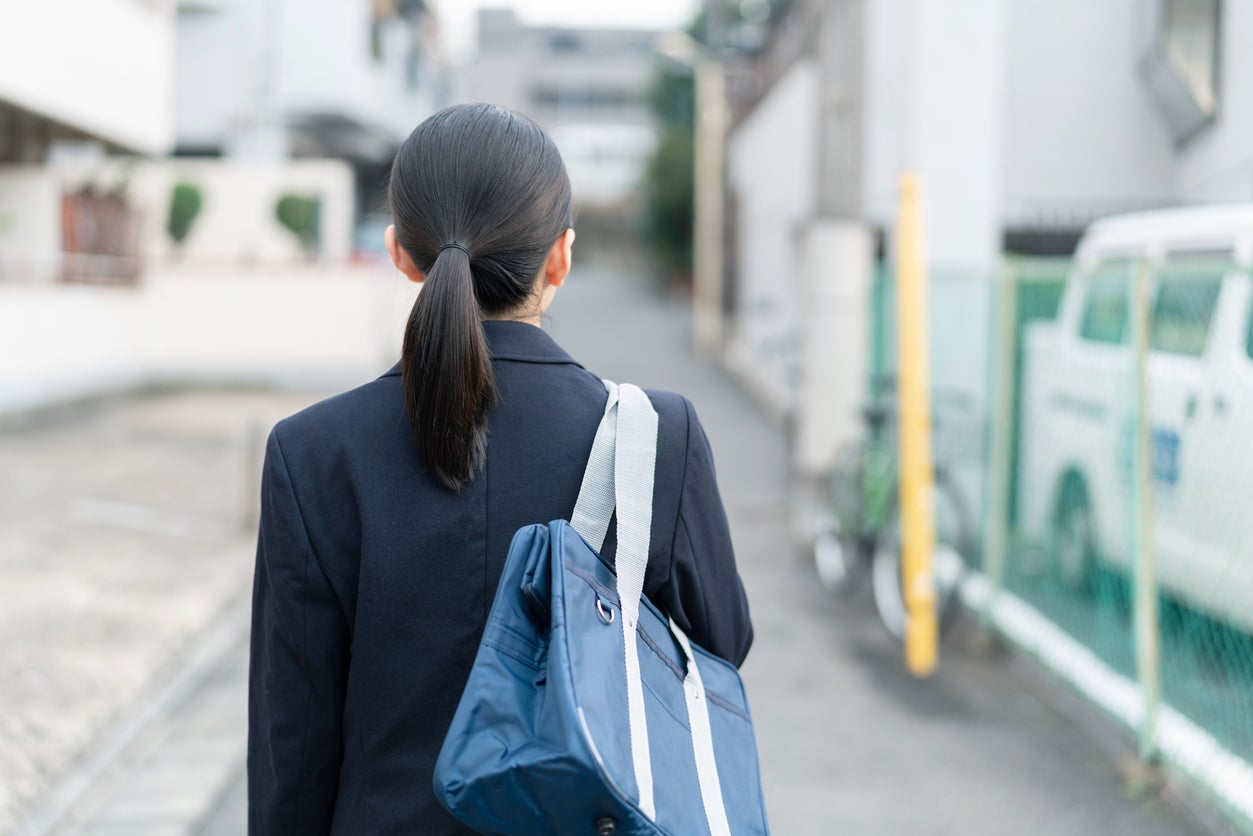My 13-year-old daughter was catcalled in the street after school. Here’s what I’m going to do about it
My daughter felt ‘dirty’ and ‘worried’ after being inappropriately heckled in the street – we need to make sure we educate everyone that this behaviour is not OK and needs to be called out at every opportunity


Your support helps us to tell the story
From reproductive rights to climate change to Big Tech, The Independent is on the ground when the story is developing. Whether it's investigating the financials of Elon Musk's pro-Trump PAC or producing our latest documentary, 'The A Word', which shines a light on the American women fighting for reproductive rights, we know how important it is to parse out the facts from the messaging.
At such a critical moment in US history, we need reporters on the ground. Your donation allows us to keep sending journalists to speak to both sides of the story.
The Independent is trusted by Americans across the entire political spectrum. And unlike many other quality news outlets, we choose not to lock Americans out of our reporting and analysis with paywalls. We believe quality journalism should be available to everyone, paid for by those who can afford it.
Your support makes all the difference.The question came out of nowhere, slipped into a mundane conversation on Saturday afternoon, as we were trying on clothes. “Mum, what should I do when men whistle and shout at me in the street?”
A part of me wanted to cry that this was happening. And now. At 13. I thought she’d have a few years before she had to deal with that. But the other part of me wanted to roar, to charge out of the house and find these men, shake them and ask them how they’d feel if someone shouted lewd comments at their daughters.
But I went for the sensible option. I suggested she ignore them, that by confronting them she risks encouraging them, or worse. She nodded and said that’s what she usually did. Put her head down and hurried on. Turned up her music. Tried to block it out.
I asked her how it made her feel when it happened. A bit dirty, she admitted. A bit worried. These are not things I want my 13-year-old to feel when she’s walking home from school in her uniform, or walking anywhere. And telling her to ignore it felt like a poor answer. I tell my two girls to hold their heads high, to stand up for what’s right, to be confident as they start navigating their way in the world. And here I was telling them to look the other way.
So I went on Twitter and posed the question. What should I have said instead, I asked my 1,000 followers, almost all fellow authors involved in the book publishing industry. I thought I’d get a few good ideas for my daughter to try. But I got a lot more than that. This is a topic that clearly resonates with people everywhere. So far I’ve had 250,000 likes, 28,000 retweets and 2,500 comments. And some penis pictures, I didn’t ask to see, in my DMs. One offering to “do” both my daughter and I because if I “look that good as the mum, he’d love to meet my daughter”.
But the vast, vast majority have been hugely supportive, sharing revulsion at what’s happening to my daughter and her generation and frustration that it’s still happening in 2021 despite #MeToo. From the stories people have shared, it seems as soon as girls start to go through puberty, it can begin. Girls as young as 10 are whistled at, propositioned and worse in our streets. Before they even understand why. And it’s not just calling out. People shared stories of their daughters being followed, threatened, grabbed and even raped, often while wearing their school uniform. I had to stop reading at one point because some of the stories were so heartbreaking.
The advice ranged from never letting my daughter walk alone (tempting but not practical, and why should she?) to some truly brilliant ripostes, which I will share with her. Many agreed that ignoring it is the best bet if a girl is alone and scared. There was some good advice about standing with a passerby if she feels threatened – I remember telling my children to approach women with buggies if they got lost as they were the people most likely to be kind. I never thought I’d be giving the same advice when they were teens.
Some of the most interesting comments came from men. One said he’d been driving his van one day and saw his teenage daughter walking on the pavement. He’d tooted to get her attention and she’d stuck up her finger in his direction and told him to f*** off, before she realised who it was.
Many said they would talk to their sons to make sure they’d never shout at women in the street – and importantly that they’d challenge their friends if they did. I talked to my 18-year-old son and asked if he’d ever called out to girls or women in the street and his response was that only “animals” do that.
My original instinct to ignore it is probably right in most instances. By ignoring it, my daughter isn’t encouraging worse behaviour and she feels safe. But where she – and other girls – do feel comfortable calling out the bad behaviour then I’m not against that. Just check out my tweet – there’s a whole load of great responses to choose from.
After realising that my daughter is facing this – and soon her younger sister will be too – I want to walk behind them and deal with anyone who so much as looks at her. But I realise that’s not the solution. I need to help them to navigate their way through the next 20-plus years, head high, feeling as safe as she can.
We all, as a global village, need to educate our boys that this type of behaviour is not OK, it’s never OK, and needs to be called out at every opportunity.
Cathy Hayward is a mum of three whose debut novel The Girl in the Maze, which explores the challenges of mothering and being mothered, is published later this year by Agora Books
Join our commenting forum
Join thought-provoking conversations, follow other Independent readers and see their replies
Comments